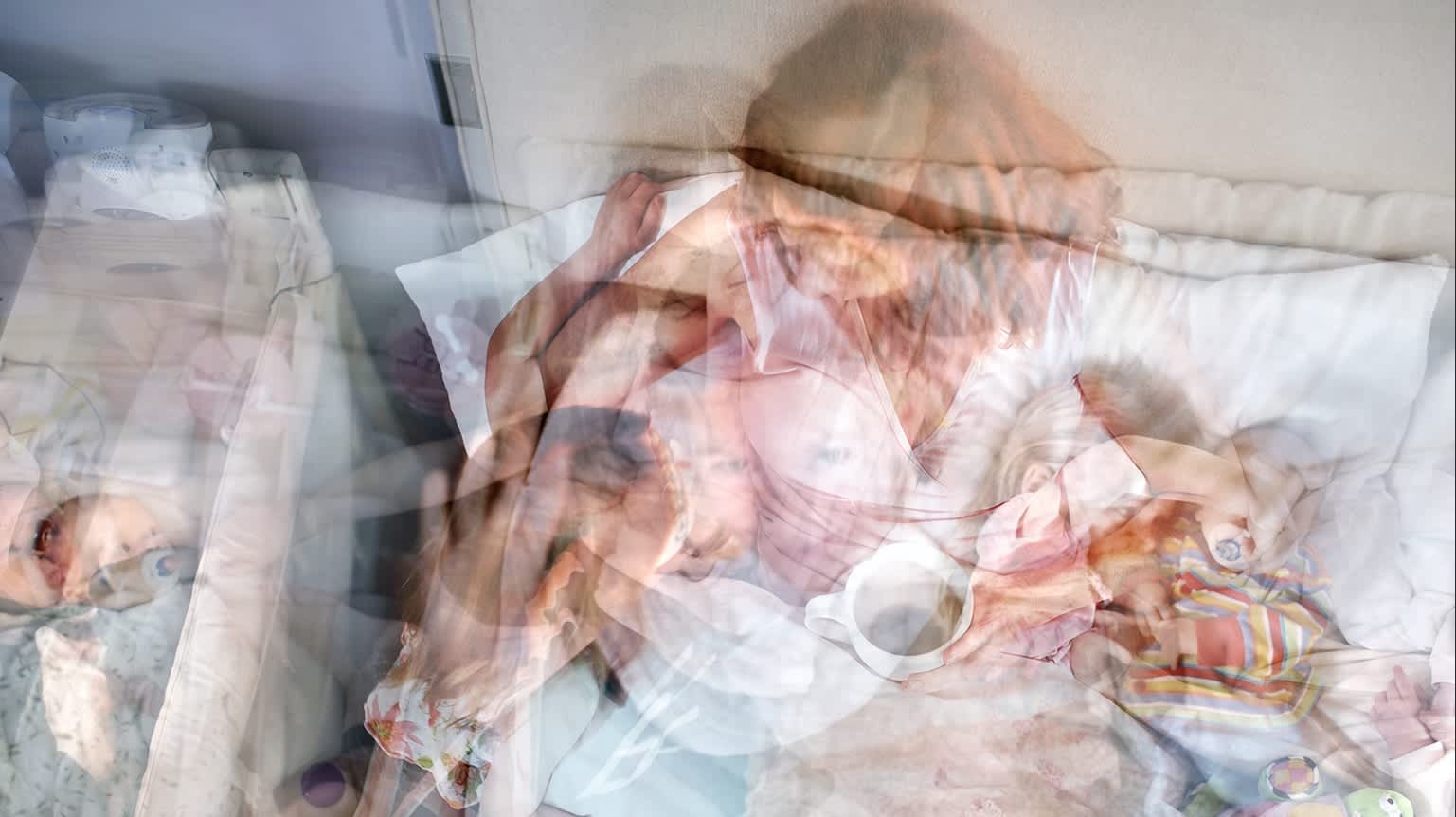Tabitha Soren documented the months following the birth of her third child, in 2006, with the help of a digital camera mounted in her bedroom and operated by remote. In her new series, Motherload, Soren layers together the resulting images.
I was excited about having a third child, but dreading the first year. A friend of mine who’s a filmmaker said, “Why don’t you just photograph the whole thing?” I had one mount for the camera over the changing table and another where I nursed. I wasn’t sure that anything would ever come out of it. I had not even looked at the photographs until a couple of months ago. They just seemed so quotidian; I couldn’t imagine that they would be interesting at all. Time can turn photographs into metaphor or allow them to become a symbol instead of a documentary picture; at this particular moment, mothers’ needs are on the minds of the country. Motherload is about what mothers don’t show: the emotions and psychological states that we’ve all been socialized to bury. It’s not so much about my personal existence as it is about the blurred existence, all that time spent keeping something alive.
Read more
I was excited about having a third child, but dreading the first year. A friend of mine who’s a filmmaker said, “Why don’t you just photograph the whole thing?” I had one mount for the camera over the changing table and another where I nursed. I wasn’t sure that anything would ever come out of it. I had not even looked at the photographs until a couple of months ago. They just seemed so quotidian; I couldn’t imagine that they would be interesting at all. Time can turn photographs into metaphor or allow them to become a symbol instead of a documentary picture; at this particular moment, mothers’ needs are on the minds of the country. Motherload is about what mothers don’t show: the emotions and psychological states that we’ve all been socialized to bury. It’s not so much about my personal existence as it is about the blurred existence, all that time spent keeping something alive.
Read more



